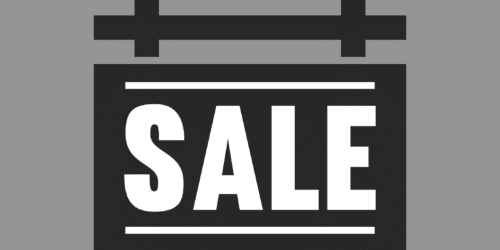As the number of confirmed cases of COVID-19 rises in Canada, employers are facing difficult decisions concerning how to balance the health of their employees with the health of their businesses. Many companies have directed their employees to work remotely, some have resorted to temporarily limiting hours, closing their doors or laying off employees, while others are attempting to operate as usual. As a result of the spreading virus, almost all Canadian businesses are experiencing a decrease in revenue, while bills and rental payments remain due.
To assist businesses in the financial challenges they are currently facing, Canada has implemented a series of actions with the goals of aiding businesses in employee retention, offering flexibility related to tax filings and mortgage payments, ensuring that businesses have access to credit and supporting financial market liquidity.
Employee Retention
- 10% Temporary Wage Subsidy
To prevent layoffs, the Canadian government is offering a temporary wage subsidy to eligible employers to reduce the amount of payroll deductions required to be submitted to the CRA. Eligible employers include individuals (excluding trusts), partnerships (whose members consist exclusively of individuals, excluding trusts), non-profit organizations, registered charities or Canadian controlled private corporations who have a business limit for their last taxation year that ended before March 18, 2020 greater than nil. To qualify, businesses must have an existing business number and payroll program account with the CRA as of March 18, 2020 and pay wages, bonuses or other remuneration to an eligible employee (an individual employed in Canada).
The subsidy is equal to 10% of the remuneration an employer pays from March 18, 2020 to June 19, 2020, up to $1,375.00 per eligible employee to a maximum of $25,000.00 total per employer. The subsidy must be calculated manually by each employer.
There is no formal application process for the subsidy. Employers will continue to deduct income tax, Canada Pension Plan contributions and Employment Insurance premiums from remuneration paid to their employees, calculate the subsidy and reduce their current payroll remittance of income tax to the CRA by the amount of the subsidy.
For more information regarding the 10% wage subsidy and/or determining whether your business is a Canadian controlled private corporation and whether you are eligible for the small business deduction, click here.
- The Canada Emergency Wage Subsidy
The Canadian Emergency Wage Subsidy is a fluctuating wage subsidy for eligible employers from March 15, 2020 to June 2021. The Canadian government has eliminated the requirement of a 30% drop in revenue and now provides a gradually decreasing base subsidy to all eligible employers. The base subsidy applies to employers with active employees who are impacted by COVID-19 and is a specified rate, applied to the amount of remuneration paid to the employees for the eligibility period. Employers who have been most adversely affected by the pandemic may qualify for an additional top-up subsidy. See the online calculator or spreadsheet to calculate how much subsidy you may receive. The maximum subsidy rate for each claim period (base rate and top-up rate) can be found here.
Eligible employers are:
- Individuals;
- Taxable corporations;
- Partnerships (owned up to 50% by non-eligible members);
- Indigenous government-owned corporations carrying on a businesses and partnerships where the partners are Indigenous governments and eligible employers;
- Registered Canadian Amateur Athletic Associations;
- Registered Journalism Organizations;
- Non-public colleges and schools, including institutions that offer specialized services, such as arts schools, driving schools, language schools and flight schools;
- Non-profit organizations;
- Registered charities;
- Agricultural organizations;
- Boards of trade;
- Chambers of commerce;
- Non-profit corporations for scientific research and experimental development;
- Labour organizations or societies; and
- Benevolent or fraternal benefit societies or orders.
For the purpose of calculating wage subsidies, the government has defined “revenue” as “revenue from business carried on in Canada earned from arm’s-length sources”. Non-profits and charities can expect flexibility in this definition to account for their specific circumstances.
Eligible employers may apply for the subsidy through the CRA My Business Account portal and a web-based application and are required to keep records demonstrating their reduction in revenue. For employers that are eligible for both the Canada Emergency Wage Subsidy and the 10% Temporary Wage Subsidy, any benefit from the 10% Temporary Wage Subsidy for a particular period would decrease the amount available under the Canada Emergency Wage Subsidy for the same period. If an employee is eligible to receive the Canada Emergency Response Benefit (See our Employment Law blogs for more information), that employee’s employer is not eligible to also claim the Canada Emergency Wage Subsidy for that same period.
Tax Filings and Mortgage Payments
The Canadian Revenue Agency (CRA) allowed all businesses to defer income tax payments for the current year to September 30, 2020. No interest was to accumulate and no penalties were to apply during this period. Interest on existing tax debts were also waived from April 1, 2020 to September 30, 2020. This waiver did not cancel penalties or interest already assessed prior to this period.
Small business owners can take advantage of the CRA’s free and confidential Liaison Officer service, now over the phone, to gain an understanding of their tax obligations, deadlines and options for relief. Businesses, including self-employed persons, were permitted by the Canadian government to defer all Goods and Services Tax/GST/HST payments and customs duty payments owed for imports until June 30, 2020.
T2 returns for November 30, 2019 year ends and partnership returns normally due on May 31, 2020 were instead due on September 1, 2020. The CRA was not to impose late-filing penalties on a corporation who filed its return by September 30, 2020.
The federal government has also been working with major chartered banks to ensure that mortgage payments for small businesses can be deferred or reduced. We recommend that you contact your bank for further details.
The Ontario government has also announced a five-month relief period (April 1, 2020 – August 31, 2020), for Ontario businesses to file or remit certain provincial taxes. Tax filing and remittance deadlines are unchanged, but penalties and interest will not apply to Ontario businesses that miss filing or remittance deadlines for Employer Health Tax; Tobacco Tax; Fuel Tax; Gas Tax; Beer, Wine & Spirits Tax; Mining Tax; Insurance Premium Tax; International Fuel Tax Agreement; Retail Sales Tax on Insurance Contracts and Benefit Plans; and Race Tracks Tax. Penalties and interest will be waived automatically during the relief period. Businesses are not required to contact the Ministry of Finance related to late filings, but must file any late returns or remittances by the end of the relief period. Existing debts (outstanding tax, interest or penalties) from before the relief period will continue to accrue interest.
Additional assistance from the Ontario government for businesses has come to light such as WSIB premium deferrals until August 31, 2020, Business Education Property Tax deferrals for one payment quarter (90 days after June), the Employer Health Tax exemption threshold has been increased to $1 million for the next year, and Provincial Land Tax Payments are deferred from their next due date for 90 days without interest or penalty.
Access to Credit for Small and Medium-Sized Businesses
In response to the economic challenges now faced by businesses during the COVID-19 pandemic, Export Development Canada (EDC) and the Business Development Bank of Canada (BDC) will work with financial institutions to provide additional support to small and medium-sized businesses with viable business models. EDC and BDC are also working with private lenders to coordinate on credit solutions for businesses in sectors such as oil and gas, air transportation and tourism. The near-term credit available to farmers and the agri-food sector will be increased through Farm Credit Canada, and those with loans due from the Advance Payment Program on or before April 30, 2020, have an additional 6 months to pay.
Any creditworthy Canadian business seeking financing to support its operations and retain employees may apply. Canadian companies should first contact their financial institution account manager for more information. In some cases, businesses will be referred directly to BDC or EDC. Companies may also contact BDC or EDC directly if they already have an established business relationship with these organizations.
EDC has launched the new Small and Medium-Sized Enterprise Loan and Guarantee Program, which allows financial institutions to issue operating credit and cash flow term loans of up to $6.25 million to eligible existing clients with 80% guaranteed by EDC. Funds are to be used for operational expenses only.
The BDC Co-Lending Program for Small and Medium-Sized Enterprises also provides term loans for operational and liquidity needs of businesses, including interest payments on existing debt. The Co-Lending Program is structured in three segments as follows: loans of up to $312,500.00 to businesses with revenues of less than $1 million; loans of up to $3.125 million for businesses with revenues between $1 million and $50 million; and loans of up to $6.25 million for businesses with revenues in excess of $50 million. Loans are interest-only for the first twelve months with a ten-year repayment period.
For more information, please click here.
Canada United Small Business Relief Fund
Currently, eligible small to medium-sized businesses can apply through the Ontario Chamber of Commerce for the next wave of Canada United Small Business Relief Fund grants. Eligible businesses are those located anywhere in Canada with between $150,000 and $3 million in annual sales; with up to 75 employees; are registered in Canada; and will use the grant to cover the costs of personal protective equipment, make physical modifications to their businesses to meet local health and safety requirements and enhance their digital or e-commerce capabilities. Eligible expenses include incremental costs incurred as a direct result of adjusting operations in accordance with pandemic safety guidelines (as opposed to normal or usual ongoing business costs) incurred on or after March 15, 2020.
Applicants may view program guidelines and the pre-application check-list as well as submit applications on the Ontario Chamber of Commerce website. Applicants are required to describe the reason they are applying to the program and the impact of COVID-19 on the operations of the business; attach all applicable receipts, invoices and proof of payment to their applications; and submit their sales tax registration document or recent sales tax filing with proof of business registration, a business licence, articles of incorporation or letters patent, and for partnerships, articles of incorporation or letters patent for each corporate partner.
The Canada Emergency Business Account (CEBA)
CEBA, through the Canadian government, provides credit for small businesses to pay for operating costs (i.e. payroll, rent, utilities, insurance, property tax or debt service). Eligible employers are those operating as of March 1, 2020 with $20,000.00 to $1.5 million in total payroll in 2019 (including micro businesses and not-for-profits). Financial institutions will provide interest-free credit facilities of up to $40,000.00 to eligible businesses. 25% (up to $10,000.00) of loans repaid by December 31, 2022 will be forgiven. The remaining balance of loans not repaid by December 31, 2022 will be converted to a three-year term loan at 5% interest. Eligible businesses (those who can attest to the impact of COVID-19 on theis businesses) may now access an additional interest-free loan of up to $20,000.0, and half of this additional financing would be forgivable if repaid by December 31, 2022. We encourage you to contact your financial institution or credit union for more information. Qualifying businesses may apply for CEBA until December 31, 2020.
As of June 26, 2020, eligibility for CEBA expanded to include more small businesses such as sole proprietors receiving income directly from their businesses, businesses that rely on contractors and family-owned corporations that pay their employees through dividends rather than payroll. If your business is eligible, you may apply for CEBA by contacting your primary financial institution with which your business has had an active business chequing/operating account since at least March 1, 2020. This account must not have been in arrears on existing borrowing facilities by 90 days or more as at March 1, 2020. Please note that the Canadian government is currently working with financial institutions to make CEBA available to businesses that have been previously ineligible for CEBA, such as businesses operating through personal rather than business bank accounts.
To be eligible for CEBA, businesses must not have previously used CEBA, must not apply for CEBA with any other financial institution, must intend to continue to operate their businesses or resume operations and must agree to participate in post-funding surveys conducted by the Government of Canada or its agents. Export Development Canada has opened a call centre to answer questions related to eligibility for CEBA, application status and the document upload website. The call centre is open Monday-Friday, 8:00 a.m.-9:00 p.m. ET and can be reached at 1-888-324-4201.
The Canadian government has announced that CEBA is now available to businesses that have been operating out of a non-business banking account. The deadline to apply for CEBA is ]June 30, 2021.
The Large Employer Emergency Financing Facility (LEEFF)
On May 11, 2020, the federal government announced a new program, LEEFF, which will provide eligible large employers with access to loans of up to $60 million and guarantees of up to $80 million in order to avoid bankruptcy and protect the large number of jobs these companies provide to Canadian citizens. Justin Trudeau emphasizes that this program will provide bridge loans, not bail-outs. Eligible companies will have significant operations or workforce in Canada and have an annual revenue of $300 million or more. Companies provided with funding through LEEFF will be expected to maintain certain jobs and investments, respect collective agreements and pension obligations, make clear environmental and climate-related commitments, share their complete financial structure during the application process in order to prevent tax evasion and will be subject to restrictions on dividends, share buybacks and executive compensation. Companies intending to use the funds to resolve an insolvency and/or restructure a firm and those who are not in need of this funding will not be eligible.
Eligible employers are large for-profit enterprises (except for those in the financial sector) and certain non-for-profit enterprises (i.e. airports) who (a) have a significant impact on Canada’s economy, by having significant operations in Canada or by supporting a significant workforce in Canada; (b) can demonstrate $300 million or more in annual revenue; and (c) require a minimum loan size of $60 million. Companies that have been found guilty of tax evasion are not eligible. Applicants must commit to minimizing loss of employment and sustaining domestic business activities and must demonstrate that LEEF funding forms part of their plan to regain financial stability. Applicants are asked to register their interest by email to applications@ceefc-cfuec.ca.
CanExport SMEs Program
The Canadian government, through the CanExport SMEs program launched in 2016, is currently assisting Canadian businesses with developing and expanding their e-commerce presence by covering partial costs associated with online sales platforms and digital strategy consulting, advertising and search engine optimization; attending virtual trade shows and other business-to-business events; and navigating new COVID-19-related trade barriers by helping pay for new international market certifications and requirements. The CanExport SMEs program is also intended to support indigenous and women-owned small businesses, which have been disproportionately impacted by COVID-19. Application guidelines can be found here.
Insured Mortgage Purchase Program (IMPP) and Canada Mortgage Bonds
The government announced on March 16, 2020 that it is launching an Insured Mortgage Purchase Program (IMPP) under which the government will purchase up to $150 billion in government-insured mortgages to provide stable funding to banks. The central bank has stated that it will begin purchasing about $500 million a week in mortgage bonds and accept a wider set of securities in its term repo operations. The bank will also allow more non-mortgage loans to be used as collateral in a separate overnight facility. The Bank of Canada has further pledged, beginning on March 23, 2020, to acquire securities directly linked to corporate credit lines of small and medium-sized businesses weekly and to widen the terms to include six-month and 12-month operations. Depending on market conditions and investor demand, the Canada Mortgage and Housing Corporation is also prepared to expand the issuance of Canada Mortgage Bonds to a total issuance amount of up to $60 billion.
For more information, please click here.
Domestic Stability Buffer and Interest Rates
On March 13, 2020, the Office of the Superintendent of Financial Institutions announced it is lowering the Domestic Stability Buffer to 1% of risk-weighted assets, effective immediately and continuing for at least 18 months. This action will allow Canada’s large banks to inject $300 billion of additional lending into the economy. The Bank of Canada has also cut its interest rate to 0.25%.
Canada Emergency Commercial Rent Assistance (CECRA)
The Canadian government has announced the CECRA program, which will seek to provide loans, including forgivable loans, to commercial property owners who lower or forgo rent for small businesses. For more information regarding eligibility and how to apply for CECRA, see this blog post.
Moving Forward
If eligible, we encourage our clients to take advantage of these new government benefits. Monitor future federal government announcements about COVID-19 programs for businesses, check the BDC and EDC websites for further details on applying for credit and contact your bank regarding deferral of loan payments.
Should you have questions or concerns about how COVID-19 may be impacting your business and what Canada is doing to help or if you require assistance with employment issues, family law, wills and estates or other legal matters during this challenging time, please contact our team.
This blog post was written by Jade Renaud, a member of the Business Law team. Jade can be reached at 613-369-0373 or at jade.renaud@mannlawyers.com.







